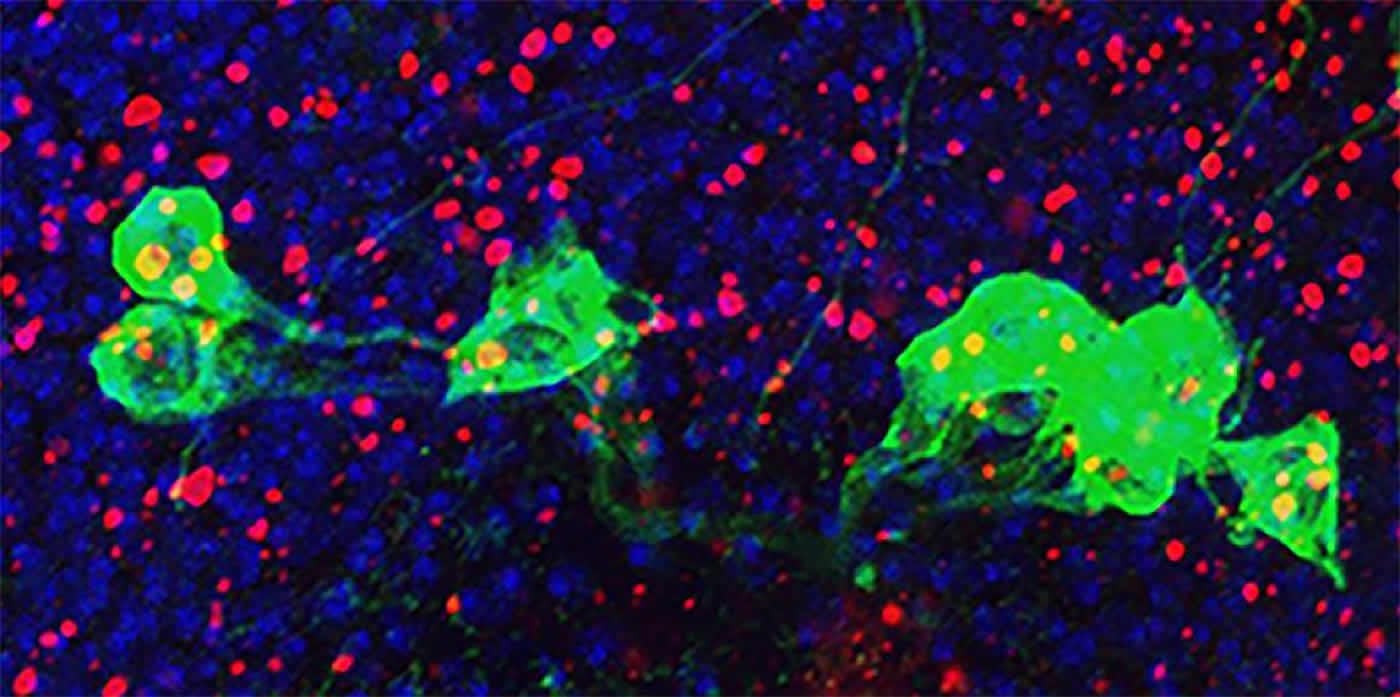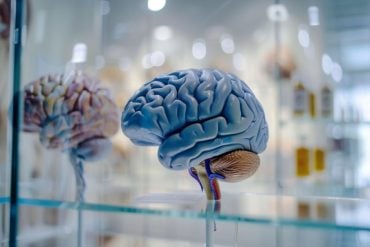Summary: According to a new study, the immune system may play a critical role in damage associated with neurodegenerative disorders such as Alzheimer’s disease and ALS. The study reports altering Cdk5 results in the death of dopamine neurons and slowed autophagy.
Source: NIH.
In a study of fruit flies, NIH scientists suggested that the body’s immune system may play a critical role in the damage caused by aging brain disorders. The results are based on experiments in which the researchers altered the activity of Cdk5, a gene that preclinical studies have suggested is important for early brain development and may be involved in neurodegenerative diseases, such as ALS, Alzheimer’s and Parkinson’s disease.
Previously, they found that altering Cdk5 sped up the genetic aging process, causing the flies to die earlier than normal and have problems with walking or flying late in life and greater signs of neurodegenerative brain damage.
In this study, published in Cell Reports, they suggested that altering Cdk5 resulted in the death of dopamine releasing neurons, especially in the brains of older flies. Typically, Parkinson’s disease damages the same types of cells in humans.
Further experiments in flies suggested the neuron loss happened because altering Cdk5 slowed autophagy, or a cell’s waste disposal system that rids the body of damaged cells in a contained, controlled fashion, which in turn triggered the immune system to attack the animal’s own neurons. This immune system attack is a much “messier” and more diffuse process than autophagy.
Genetically restoring the waste system or blocking the immune system’s responses prevented the reduction in dopamine neurons caused by altering Cdk5.

The authors concluded that this chain reaction in which a breakdown in autophagy triggers a widely destructive immune reaction may occur in human brain during several neurodegenerative disorders and that researchers may want to look to these systems for new treatment targets and strategies.
Funding: This study was supported by the Intramural Research Program at the NINDS (NS003106).
Source: Christopher G. Thomas – NIH
Publisher: Organized by NeuroscienceNews.com.
Image Source: NeuroscienceNews.com image is credited to Giniger Lab, NIH/NINDS.
Original Research: Open access research for “Hyperactive Innate Immunity Causes Degeneration of Dopamine Neurons upon Altering Activity of Cdk5” by Arvind Kumar Shukla, Joshua Spurrier, Irina Kuzina, and Edward Giniger in Cell Reports. Published January 2 2019.
doi:10.1016/j.celrep.2018.12.025
[cbtabs][cbtab title=”MLA”]NIH”Hyperactive Immune System Implicated in Aging Brain Disorders.” NeuroscienceNews. NeuroscienceNews, 2 January 2019.
<https://neurosciencenews.com/neurodegeneration-immune-system-10408/>.[/cbtab][cbtab title=”APA”]NIH(2019, January 2). Hyperactive Immune System Implicated in Aging Brain Disorders. NeuroscienceNews. Retrieved January 2, 2019 from https://neurosciencenews.com/neurodegeneration-immune-system-10408/[/cbtab][cbtab title=”Chicago”]NIH”Hyperactive Immune System Implicated in Aging Brain Disorders.” https://neurosciencenews.com/neurodegeneration-immune-system-10408/ (accessed January 2, 2019).[/cbtab][/cbtabs]
Abstract
Hyperactive Innate Immunity Causes Degeneration of Dopamine Neurons upon Altering Activity of Cdk5
Innate immunity is central to the pathophysiology of neurodegenerative disorders, but it remains unclear why immunity is altered in the disease state and whether changes in immunity are a cause or a consequence of neuronal dysfunction. Here, we identify a molecular pathway that links innate immunity to age-dependent loss of dopaminergic neurons in Drosophila. We find, first, that altering the expression of the activating subunit of the Cdk5 protein kinase (Cdk5α) causes severe disruption of autophagy. Second, this disruption of autophagy is both necessary and sufficient to cause the hyperactivation of innate immunity, particularly expression of anti-microbial peptides. Finally, it is the upregulation of immunity that induces the age-dependent death of dopaminergic neurons. Given the dysregulation of Cdk5 and innate immunity in human neurodegeneration and the conserved role of the kinase in the regulation of autophagy, this sequence is likely to have direct application to the chain of events in human neurodegenerative disease.






